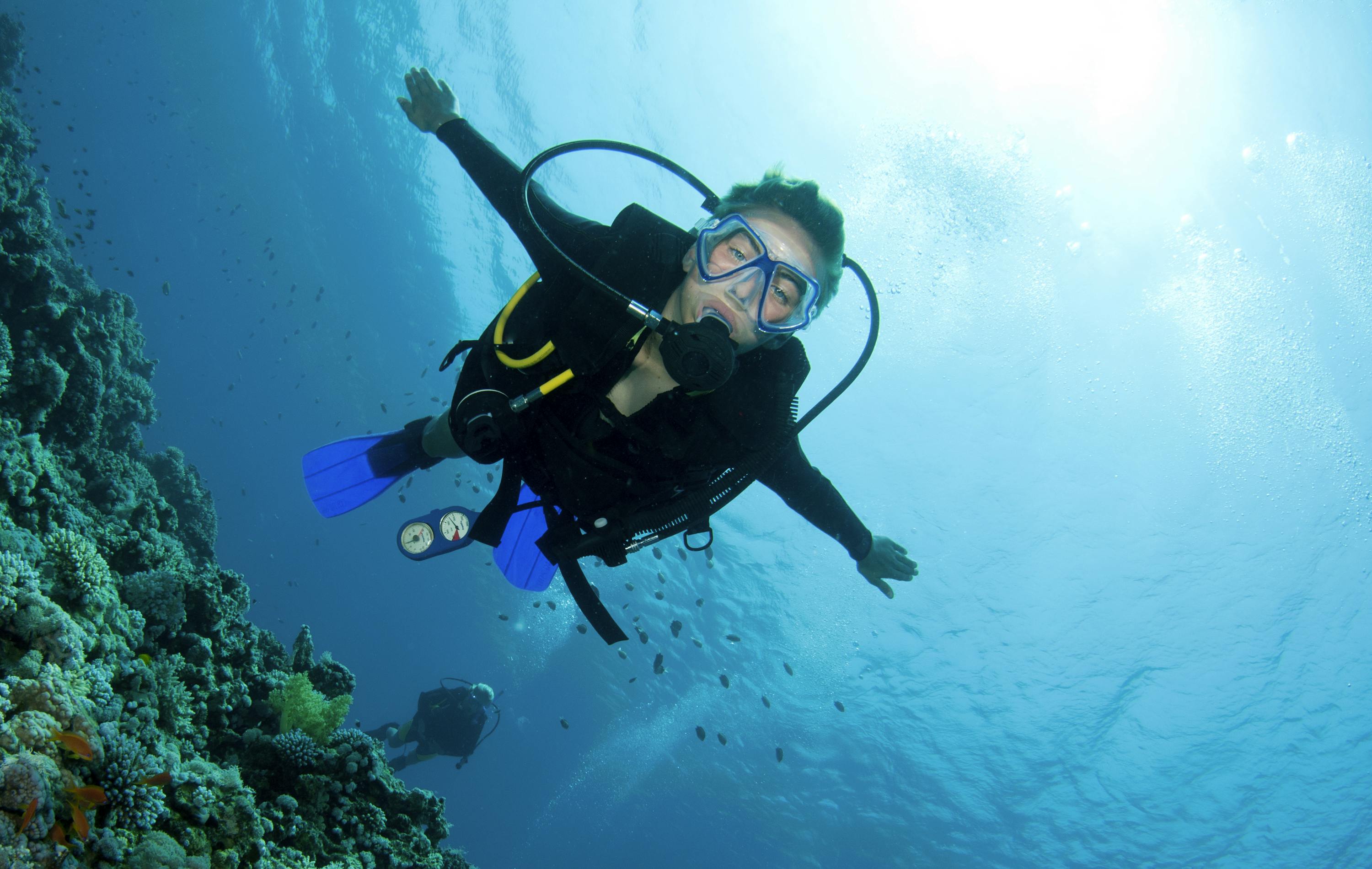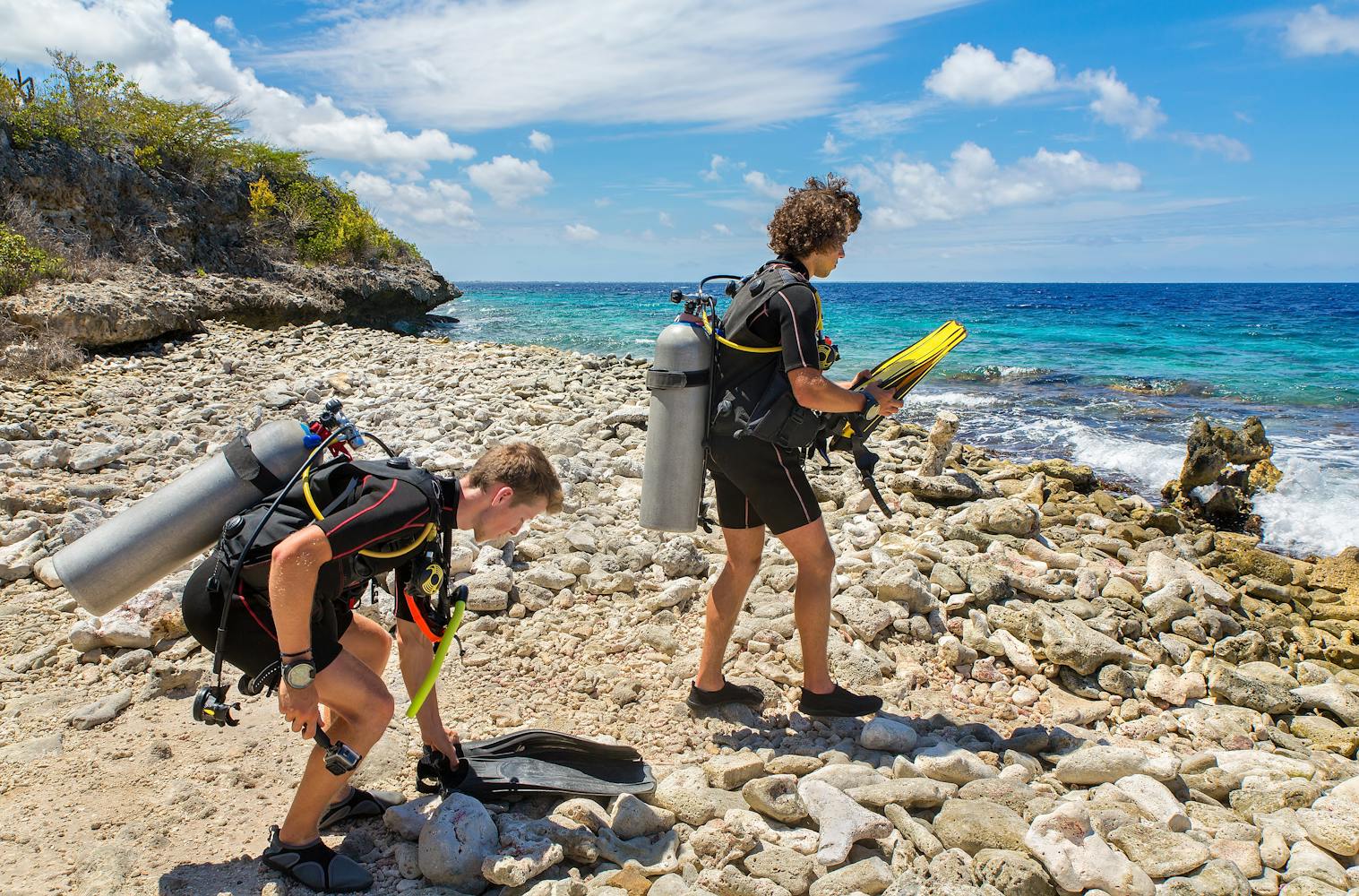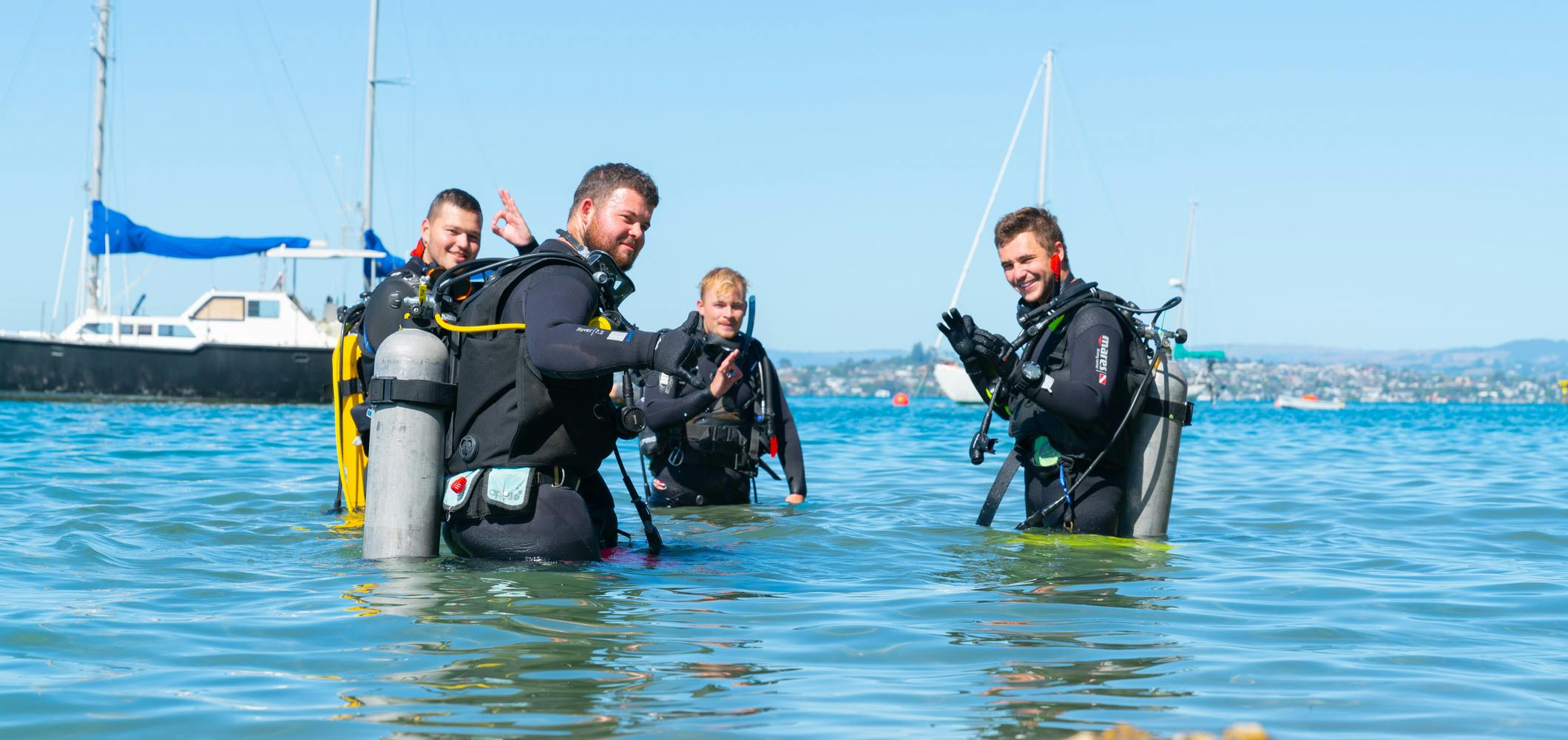Free Shipping on orders of $49+ | Signup for Direct Rewards
Free Shipping on orders of $49+ | Free Store Pickup | Signup for Direct Rewards
Free Shipping on orders of $49+ | Signup for Direct Rewards
Free Shipping on orders of $49+ | Free Store Pickup | Signup for Direct Rewards

Scuba diving is a popular recreational activity that draws people from all around the world. The benefits of scuba diving go beyond the excitement. Diving promotes health and wellness, offers a unique sense of adventure, fosters personal growth, and cultivates a strong sense of community. Divers often develop a stronger connection with nature and a deeper appreciation for protecting the ocean.
Given these unique experiences and benefits, it's clear why divers should feel grateful for the sport.
Scuba diving allows divers to immerse themselves in underwater ecosystems and get up close to marine life. It offers a rare opportunity to experience the beauty and diversity of aquatic habitats firsthand, from vibrant coral reefs and kelp forests to deep-sea environments.

Being surrounded by unique marine species and stunning underwater landscapes fosters a deeper appreciation for the ocean’s natural wonders and the need to protect them.
Not only is scuba diving an exciting activity but also a great form of exercise that enhances overall fitness. Swimming against water resistance helps build strength, improve flexibility, and boost cardiovascular health.
The experience of being underwater also provides stress relief and relaxation, as the calming environment and steady breathing help reduce anxiety. Diving has a meditative effect, allowing divers to fully focus on the present moment, promoting mindfulness, and enhancing mental well-being. Feel free to read more about the Mental Health Benefits of Scuba Diving.
With opportunities to explore new and exciting dive sites across the globe, Scuba diving offers a unique sense of adventure. From tropical reefs and icy waters to remote islands, divers can discover a wide variety of underwater landscapes.
Diving vacations and live-aboard trips provide even more chances to immerse in this adventure, allowing for extended exploration and access to distant locations. The thrill of navigating shipwrecks, underwater caves, and vibrant coral reefs satisfies a deep curiosity and sense of wonder, making every dive an unforgettable experience.
Scuba diving promotes personal growth by helping individuals gain confidence and overcome fears. Navigating underwater environments and mastering diving skills can transform apprehension into assurance, encouraging divers to improve their technique.
Additionally, there are numerous opportunities for continued education, such as advanced certifications and specialized training courses. These programs not only enhance diving skills but also deepen knowledge about marine ecosystems and safety practices, fostering a lifelong journey of learning and self-improvement.


Bringing together individuals who share a passion for exploration and adventure, scuba diving fosters a strong sense of community. Meeting fellow divers often leads to lasting friendships built on shared experiences and mutual interests.
The diving community is known for its supportive nature, where divers encourage and help one another, whether it's during training or while exploring new dive sites. Sharing memorable experiences with dive buddies creates bonds that go beyond the water, giving each dive a chance to connect and create lasting memories together.
Scuba diving offers countless reasons to be thankful, from the deep connection with nature and the physical and mental health benefits to the sense of adventure and the growth of personal skills. The supportive community and the friendships formed to enhance the diving experience, making it a truly enriching activity.
As you reflect on your own diving experiences, consider the unique moments that have shaped your journey. Whether it's the thrill of exploring new dive sites, the tranquility of underwater environments, or the bonds created with fellow divers, each dive is an opportunity to be grateful for the extraordinary world beneath the waves.
Is scuba diving safe?
When proper training and safety procedures are followed, scuba diving is generally very safe. Divers should always use well-maintained equipment, follow dive plans, and respect their training limits.
How deep can you go while scuba diving?
Recreational diving limits are generally set at a maximum depth of 130 feet (40 meters). Deeper dives require specialized training and certification.
What should I do if I feel nervous or panicked underwater?
The key is to stay calm, stop moving, and focus on slow, deep breathing. Ascend slowly if necessary, but always follow proper safety procedures
How often do I need to get my dive gear serviced?
Most manufacturers recommend servicing scuba gear annually, or as specified by the equipment manufacturer, to ensure safety and proper functioning.
How do I equalize pressure in my ears while diving?
To equalize ear pressure while descending, divers typically use the Valsalva maneuver—pinching the nose and gently blowing through it—or by swallowing or wiggling the jaw to relieve the pressure.